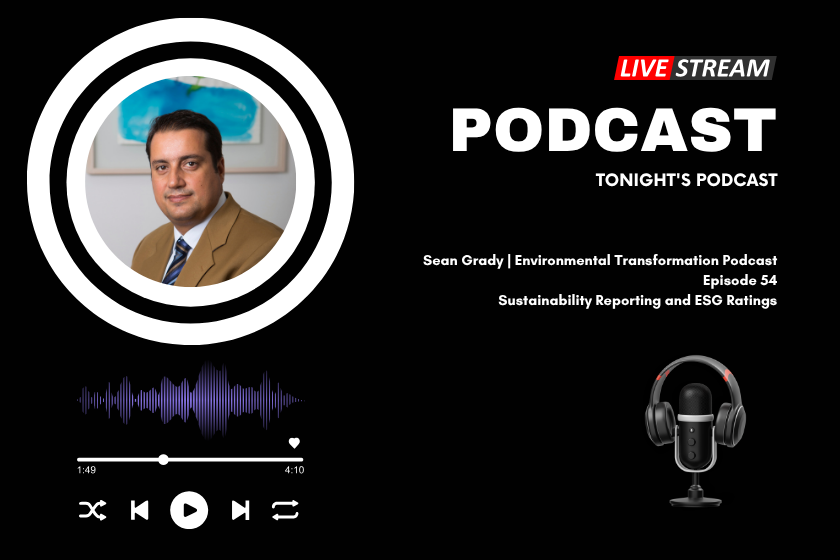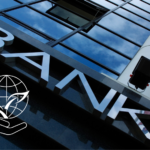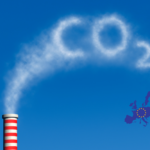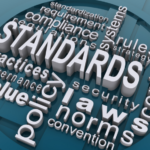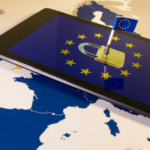In this exclusive podcast interview, sustainability leader Nikos Avlonas, CEO of the Center for Sustainability and Excellence (CSE), joins Sean Grady to discuss why ESG is reshaping global business. From ESG ratings and reporting standards to legislation in the U.S. and Europe, this conversation offers expert insights for professionals navigating the future of corporate sustainability.
Host: Sean Grady, Environmental Transformation Podcast
Guest: Nikos Avlonas, President of the Centre for Sustainability and Excellence (CSE)
Sean Grady: Welcome back to the Environmental Transformation Podcast. I’m your host, Sean Grady. Today, I’m excited to welcome back a returning guest, Nikos Avlonas, President and CEO of the Center for Sustainability and Excellence (CSE). Nikos, welcome.
Nikos Avlonas: Thank you, Sean. It’s a pleasure to be here again.
Sean: Nikos, ESG has become a hot topic across industries. Before we dive into that, could you introduce our listeners to CSE and your journey?
Nikos: Absolutely. CSE was founded 15 years ago in Europe and was the first company to offer sustainability consulting and training. We helped create an entire sector, which has since grown into a $35 billion industry. From Europe, we expanded to Chicago, our global HQ, and now operate in North America, the Gulf, Europe, and Asia. We’ve worked with Fortune 500 companies, government agencies, and trained professionals in over 90 countries.
Sean: That’s impressive. Let’s talk about ESG. What does it stand for, and why is it so important now?
Nikos: ESG stands for Environmental, Social, and Governance. It reflects what investors require from businesses to reduce risk and ensure long-term sustainability. While it sounds simple, ESG includes over 100 criteria, covering everything from carbon emissions and diversity to governance and supply chain integrity.
Sean: And investors are clearly shifting priorities.
Nikos: Exactly. It’s no longer just about profitability. It’s about doing well by doing good. According to Bloomberg, by 2025, ESG-related assets could reach $50 trillion. One out of every three investment dollars already follows ESG criteria.
Sean: So how do companies communicate ESG performance effectively?
Nikos: Through ESG reporting—essentially, sustainability reporting. It’s how businesses disclose performance on environmental and social goals and governance practices. It’s a key tool to influence investors and ratings agencies.
Sean: What benefits do these reports offer?
Nikos: They help companies set measurable public goals, improve internal performance, and manage change. Critically, sustainability reports now reflect 80% of a company’s value—its intangible assets. In some regions, such as the EU, ESG reporting is already legally required.
Sean: That’s a major shift. Let’s shift to careers. There’s huge demand for sustainability professionals now, right?
Nikos: Definitely. CSE has certified over 8,000 practitioners, representing 94% of Fortune 500 firms. According to the ILO, 24 million green economy jobs will be created by 2030. Companies now need entire teams to manage ESG strategy and compliance.
Sean: And ESG knowledge evolves quickly, right?
Nikos: Yes. New standards emerge every year. Professionals need ongoing education to stay relevant. That’s why we offer foundational and specialized trainings—on carbon metrics, circular economy, and more—for professionals and even boards of directors.
Sean: Let’s talk geography. Are there big differences between U.S., Canadian, and European ESG frameworks?
Nikos: Yes. European and Canadian regulations are currently more stringent. Global companies often adopt the toughest standards to simplify compliance. But legislation is evolving fast. Compliance today is a moving target.
Sean: What about the SEC’s new climate disclosure rules?
Nikos: We contributed to the SEC consultation. The proposed rules require companies to disclose climate-related risks and readiness plans. It’s a major step toward standardizing ESG reporting in the U.S.
Sean: Scope 3 emissions—those from the supply chain—are also a focus. How difficult is that for companies?
Nikos: Extremely challenging. Business travel emissions are easy to track, but supply chain emissions are complex. Companies will increasingly require suppliers to report emissions data—often tied to contracts. SMEs must adapt quickly or risk losing clients.
Sean: Europe is pushing hard here too, right?
Nikos: Yes. The EU Green Deal aims for carbon neutrality by 2050, and the EU Taxonomy defines what counts as sustainable investment. It’s a game-changer—especially for U.S. companies doing business in Europe.
Sean: Do you foresee product-level climate impact scores becoming standard?
Nikos: We’re not there yet, but we’re moving in that direction. Product-level classification will require unified systems. In four to five years, I expect progress, especially with supply chain pressure and consumer demand.
Sean: Any final thoughts on the future of ESG?
Nikos: ESG is reshaping business. From executive compensation tied to ESG performance to board-level strategy shifts, the change is real. Companies must transform now or risk being left behind.
Sean: Nikos, this has been incredibly insightful. Thank you for joining me again.
Nikos: Thank you, Sean. Always a pleasure.
